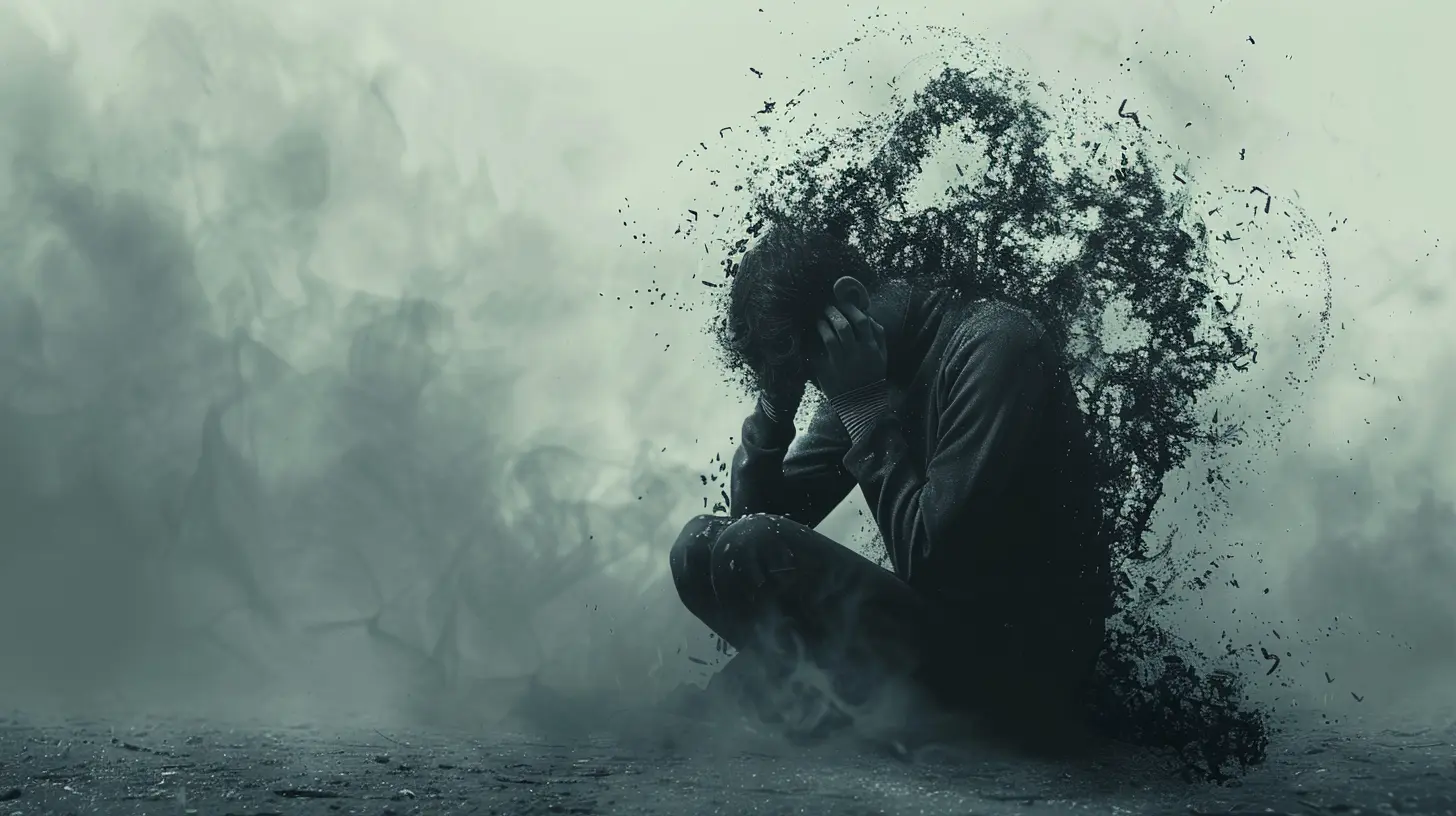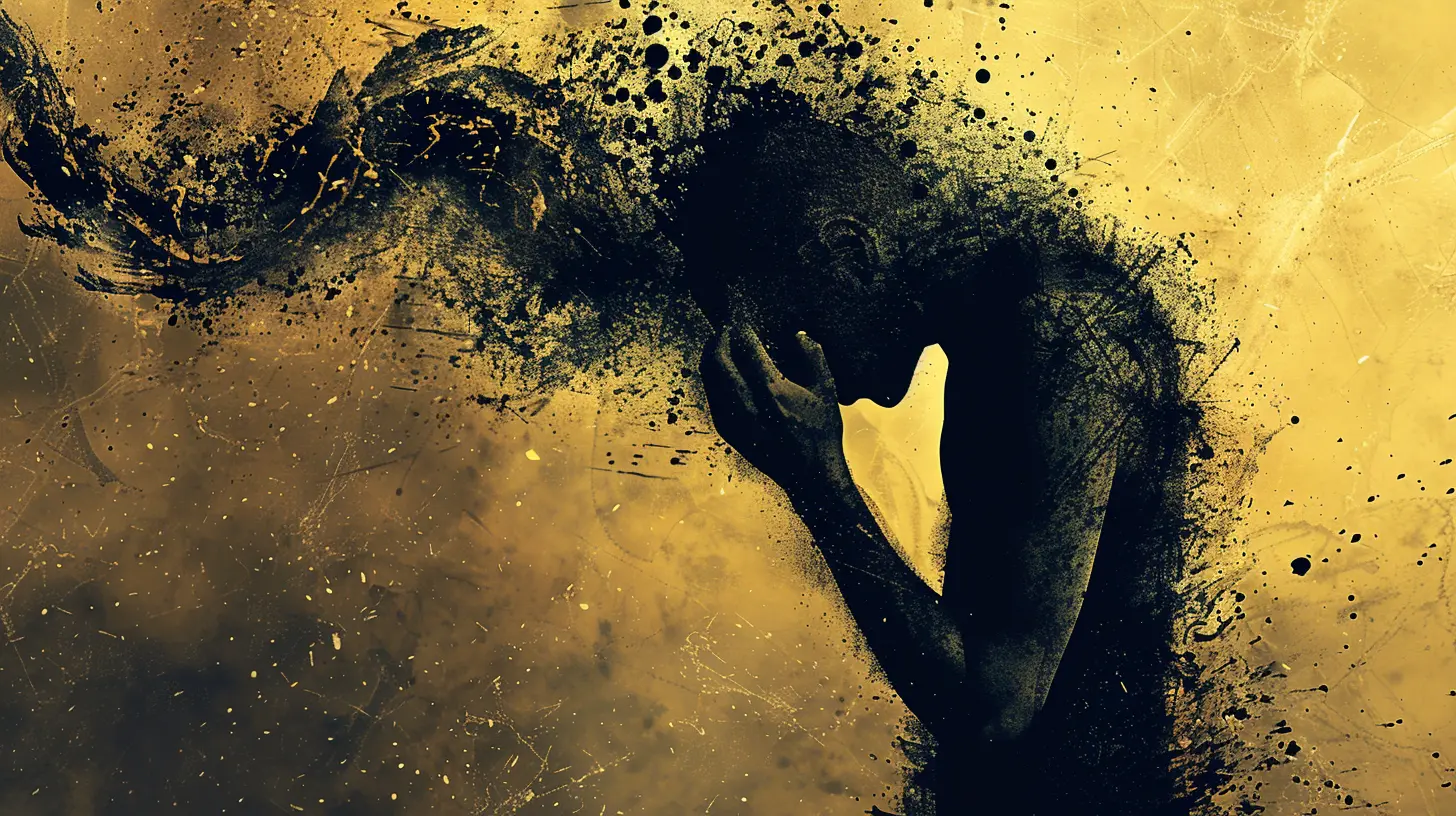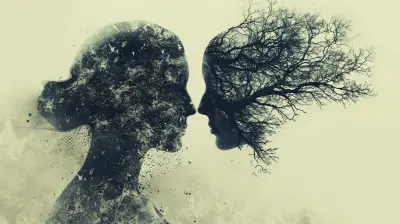Trauma and Guilt: Understanding Why Victims Blame Themselves
8 October 2025
Trauma. It's a word that carries so much weight, yet often gets tossed around casually. Whenever we hear about traumatic events, it's natural to imagine how painful and devastating they must be. But there’s something else that often goes hand-in-hand with trauma that people don’t talk about enough: guilt. Specifically, the guilt that victims feel.
Why do people who have been hurt or victimized in some way often end up blaming themselves? It doesn’t seem logical, right? After all, they’re the ones who were wronged. Yet, many trauma survivors—whether they're victims of abuse, accidents, or any traumatic event—find themselves trapped in a cycle of self-blame.
In this article, we’ll dive into the complicated relationship between trauma and guilt. We'll explore why victims tend to blame themselves and what can be done to break free from this harmful mindset.

What is Trauma?
First off, let’s clarify what we mean by "trauma." Trauma doesn’t only refer to physical harm; it can also involve intense emotional and psychological pain. Traumatic experiences come in many forms:- Abuse (physical, emotional, or sexual)
- Accidents (car crashes, natural disasters)
- Witnessing violence
- Sudden loss (death of a loved one)
Trauma shakes up your world, often leaving you feeling powerless, confused, and fearful. The emotional aftermath can leave deep scars that last long after the actual event is over.

The Link Between Trauma and Guilt
So, where does guilt come in? It seems counterintuitive that someone who has been harmed would then direct anger and blame toward themselves. But this is a common pattern, especially among trauma survivors.The first thing to realize is that guilt isn’t always rational. When you're in a traumatic situation, your brain might try to make sense of the chaos. And sometimes, assigning blame to yourself feels like the easiest way to gain some sense of control. If you were somehow responsible, then maybe you could have prevented it, right? Wrong. But that’s how it feels.
Let’s break down the reasons why trauma and guilt often go hand in hand.
1. The Need for Control
Humans have an innate desire for control. We like to feel like we’re in charge of our own lives. So, when something terrible happens—especially something completely out of our control—it's unsettling.In the aftermath of trauma, blaming yourself can feel like a way to regain control. If you caused the event (even if you didn’t), then in some twisted way, that means you had the power to prevent it. It's easier to accept that narrative than to face the terrifying truth that sometimes, bad things just happen, and we have no control over them.
For example, a person who survives a car accident might think, If only I had taken a different route or Maybe I should have driven slower. Even if the accident wasn’t their fault, assigning blame to themselves gives them a sense of power—however misguided it may be.
2. Shame and Societal Expectations
Society plays a huge role in how trauma survivors process their experiences. Unfortunately, we live in a world where victims are often blamed for their own suffering.Have you ever heard someone say, She shouldn't have been walking alone at night or He should have known better than to trust that person? Statements like these reinforce the idea that victims are somehow responsible for what happened to them. Over time, these societal judgments can lead victims to internalize blame and guilt.
Take, for instance, survivors of sexual assault. Horribly, many victims are made to feel as though they "asked for it" because of what they were wearing, how much they drank, or whether they fought back. This external blame can easily turn into internalized guilt, making the victim feel responsible for the trauma.
3. Survivor's Guilt
Survivor’s guilt is another form of self-blame that traumatized individuals often experience. This is especially common in situations where others were injured or killed, but the individual survived.Imagine someone who survives a plane crash. Even though they had no control over the situation, they might feel guilty for living while others didn’t. They may wonder, Why did I survive? What could I have done differently? This type of guilt is rooted in the belief that they somehow didn’t deserve to survive, or that they could have done more to help others.
4. Cognitive Dissonance
When something traumatic happens, it often conflicts with our existing beliefs about the world. We might believe the world is generally a safe place or that good things happen to good people. But trauma shatters those beliefs.To reconcile this cognitive dissonance, many trauma survivors create a narrative where they are at fault. This allows them to maintain the belief that the world is fair and just—because if they’re to blame, then the bad thing that happened makes "sense." It’s a mental shortcut that helps them cope with the otherwise incomprehensible.
5. Psychological Conditioning in Abusive Relationships
Guilt and self-blame are particularly prevalent in cases of prolonged trauma, such as abusive relationships. Abusers often manipulate their victims into believing that they deserve the mistreatment. Over time, the victim internalizes this message, thinking, Maybe if I hadn’t made them angry, they wouldn’t have hit me.This type of guilt often becomes deeply ingrained, making it incredibly difficult for victims to break free from the cycle of abuse. Even after leaving the abusive environment, many survivors continue to struggle with feelings of guilt and self-blame.

The Long-Term Impact of Trauma-Induced Guilt
The guilt that stems from trauma can have long-lasting effects on a person’s mental and emotional well-being. This self-blame can lead to:- Depression: Constantly feeling responsible for something beyond your control can weigh heavily on your mental health.
- Anxiety: Guilt creates a sense of unease and dread, leading to feelings of anxiety and fear about the future.
- Low self-esteem: When you blame yourself for trauma, it’s easy to start believing that you’re inherently flawed or unworthy.
- Difficulty forming relationships: Guilt can erode trust in yourself and others, making it hard to connect with people.
These feelings can persist for years, even decades, after the traumatic event. And unfortunately, many trauma survivors don’t realize that these feelings of guilt are misplaced—they think they’re simply part of who they are.

Breaking the Cycle of Self-Blame
So, how can trauma survivors break free from this harmful cycle of guilt and self-blame? While it’s not easy, it is possible. Here are some steps that can help:1. Acknowledge the Guilt
The first step in addressing trauma-induced guilt is to acknowledge it. Many people try to suppress or ignore their feelings of guilt, thinking they’ll eventually go away. But ignoring guilt only allows it to fester. Acknowledging your feelings is the first step toward healing.2. Challenge Negative Beliefs
Once you’ve acknowledged the guilt, it’s important to challenge the negative beliefs that are fueling it. Ask yourself: Is it really my fault? Did I have control over the situation? Am I being fair to myself?By challenging these beliefs, you can start to see the situation more objectively and realize that the guilt you’re carrying isn’t justified.
3. Seek Professional Help
Trauma and guilt are complex issues that often require professional intervention. A therapist who specializes in trauma can help you work through your feelings and develop healthier coping mechanisms. Cognitive-behavioral therapy (CBT), for example, is an effective treatment for addressing the negative thought patterns associated with guilt and self-blame.4. Practice Self-Compassion
One of the most important things trauma survivors can do is practice self-compassion. Instead of blaming yourself for the trauma, try treating yourself with the same kindness and understanding that you would offer a friend in a similar situation. Remind yourself that you did the best you could with the knowledge and resources you had at the time.Conclusion: Moving Beyond Trauma and Guilt
Trauma is a deeply painful experience, and the guilt that often accompanies it can make the healing process even harder. But it’s important to remember that self-blame is not the solution. Trauma survivors deserve compassion, not guilt. While it’s natural to try to make sense of what happened, assigning blame to yourself is not only unjustified—it’s harmful.If you're struggling with guilt after a traumatic event, know that you're not alone. With time, understanding, and the right support, you can begin to break free from the cycle of self-blame and start healing.
all images in this post were generated using AI tools
Category:
Psychological TraumaAuthor:

Ember Forbes
Discussion
rate this article
1 comments
Zevon Long
Self-blame in trauma highlights complex emotional wounds.
October 22, 2025 at 2:27 PM

Ember Forbes
Absolutely, self-blame in trauma reflects deep-seated emotional struggles and the need to make sense of overwhelming experiences. It’s crucial to address these feelings for healing.


